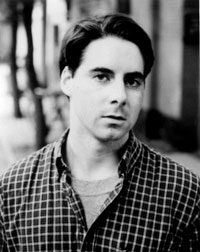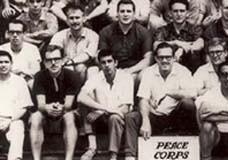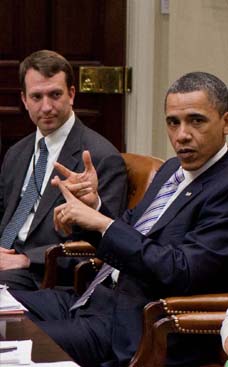
[One] primary goal of the Peace Corps is to help Americans understand the outside world. Since the China program began in 1993, former volunteers have gone on to work for the State Department, and they've become foreign service officers in China and other countries. Many work for American businesses, where their language skills are invaluable in negotiating the Chinese market. Large numbers are teachers who give their American classrooms an unusually accurate picture of China. The impact of the Peace Corps in my field, journalism, has been remarkable. Former volunteers have become China correspondents for The New York Times, National Public Radio, Newsweek, and the New Yorker. Alumni from the program have already published six books about China, with three more coming soon. (To put this in perspective, during the same period the combined bureaus of The New York Times, The Washington Post, and The Los Angeles Times produced three books.) The last time a Pulitzer Prize was awarded for China coverage, the recipient was Jake Hooker, a former Peace Corps volunteer whose exposť of counterfeit Chinese drugs resulted in significant changes in the pharmaceutical industry - changes that help protect American consumers. So where's the insult to the taxpayer? I'd say it comes from a legislator who wants to cut a remarkably successful program without doing even the most basic research into its value.
Peter Hessler writes: The value of the Peace Corps' China program
The value of the Peace Corps' China program
By Peter Hessler
Posted: 09/17/2011 01:00:00 AM MDT
Rep. Mike Coffman recently called for the Obama administration to end the Peace Corps program in China, describing it as "an insult to the taxpayers of the United States."
As a former China volunteer who now lives in Colorado, I have several criticisms of Coffman's stance. The first is basic: Coffman did not meet with any Peace Corps staff or volunteers during his spring trip to China, despite the fact that he visited Sichuan University, where the program is headquartered. Other American lawmakers have made the effort to learn firsthand about what their constituents do as volunteers. On April 24, no fewer than ten senators, including Colorado Senator Michael Bennet, attended a briefing by Peace Corps staff and volunteers in Chengdu.
Legislators are busy; I appreciate that. But a little time makes a big difference - ask anybody who has spent two years of his or her life teaching in a remote part of China. Like many of the five hundred Americans who have served in Peace Corps China, I arrived in 1996 with no background in Chinese language, history, or culture.
Two years later, I left as a fluent speaker of Mandarin, an achievement that is common in the Peace Corps, where volunteers enjoy remarkably close contact with local communities. Most importantly, I taught English in a college that had no other foreign teachers besides the Peace Corps volunteers. My students came from the countryside, and many were the first members of their families to go beyond middle school. Often their fathers were illiterate; their grandmothers had bound feet. And yet these young people were studying English, part of China's effort to engage with the outside world after decades of Maoist isolation.
Fifteen years later, I'm still in touch with nearly one hundred former students. Most of them teach English in rural middle schools - teacher-training has always been the main priority of the Peace Corps in China. And one of the primary goals of the Peace Corps worldwide is to promote a better understanding of Americans.
I taught my students about American culture, literature, and politics, and now they pass these lessons on to their own students. They regularly send emails with classroom questions: What's the Tea Party? How do Americans respond to the economic downturn? How does the electoral college work? (Some questions are easier to answer than others.) And while anti-U.S. propaganda can be a problem in China, I guarantee you that things are different in classrooms that have been touched by the Peace Corps. The Chinese have a deep respect for teachers, and they appreciate what it means for a foreigner to dedicate two years to working far from home.
Another primary goal of the Peace Corps is to help Americans understand the outside world. Since the China program began in 1993, former volunteers have gone on to work for the State Department, and they've become foreign service officers in China and other countries.
Many work for American businesses, where their language skills are invaluable in negotiating the Chinese market. Large numbers are teachers who give their American classrooms an unusually accurate picture of China. The impact of the Peace Corps in my field, journalism, has been remarkable.
Former volunteers have become China correspondents for The New York Times, National Public Radio, Newsweek, and the New Yorker. Alumni from the program have already published six books about China, with three more coming soon. (To put this in perspective, during the same period the combined bureaus of The New York Times, The Washington Post, and The Los Angeles Times produced three books.) The last time a Pulitzer Prize was awarded for China coverage, the recipient was Jake Hooker, a former Peace Corps volunteer whose exposť of counterfeit Chinese drugs resulted in significant changes in the pharmaceutical industry - changes that help protect American consumers.
So where's the insult to the taxpayer? I'd say it comes from a legislator who wants to cut a remarkably successful program without doing even the most basic research into its value.
Peter Hessler was a Peace Corps China volunteer from 1996 to 1998. He lives in Ridgway.
EDITOR'S NOTE: This is an online-only column and has not been edited.
















